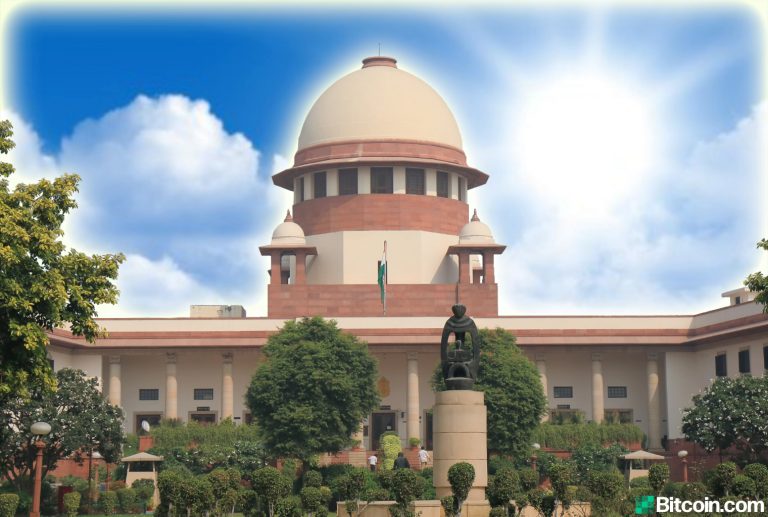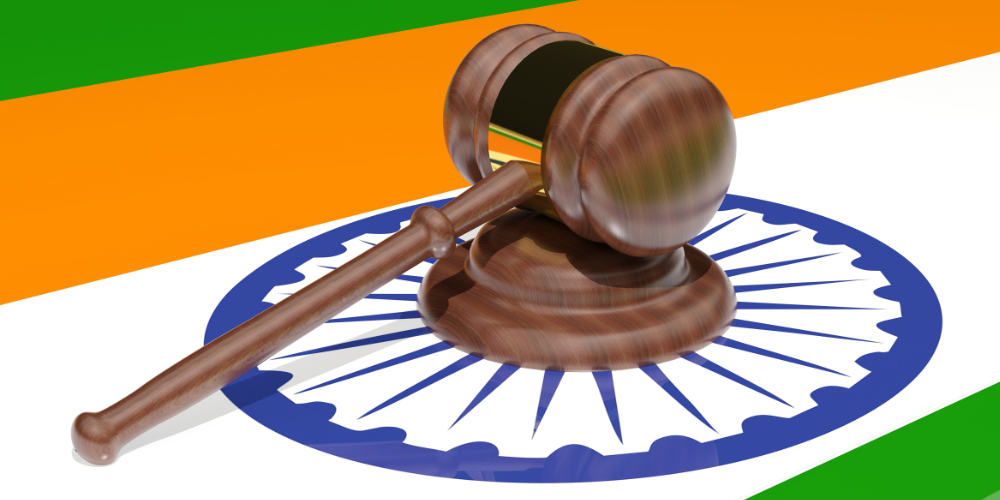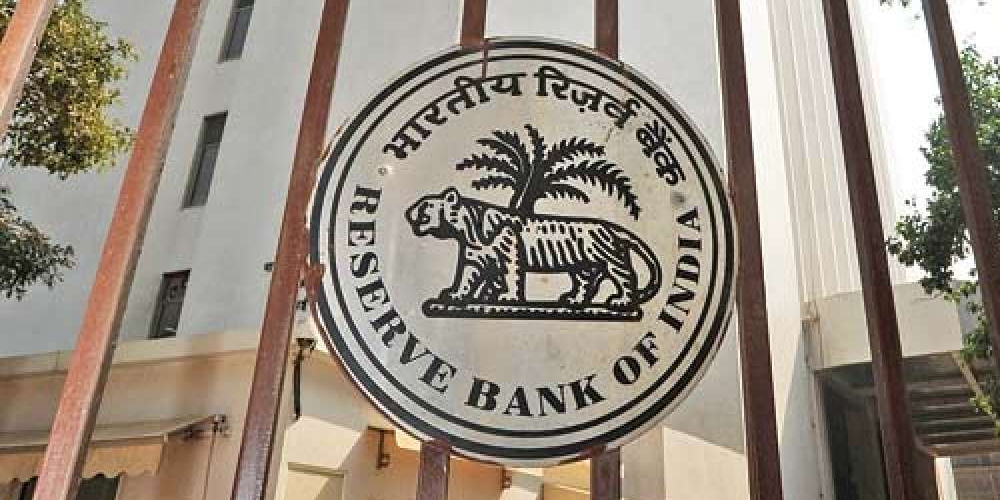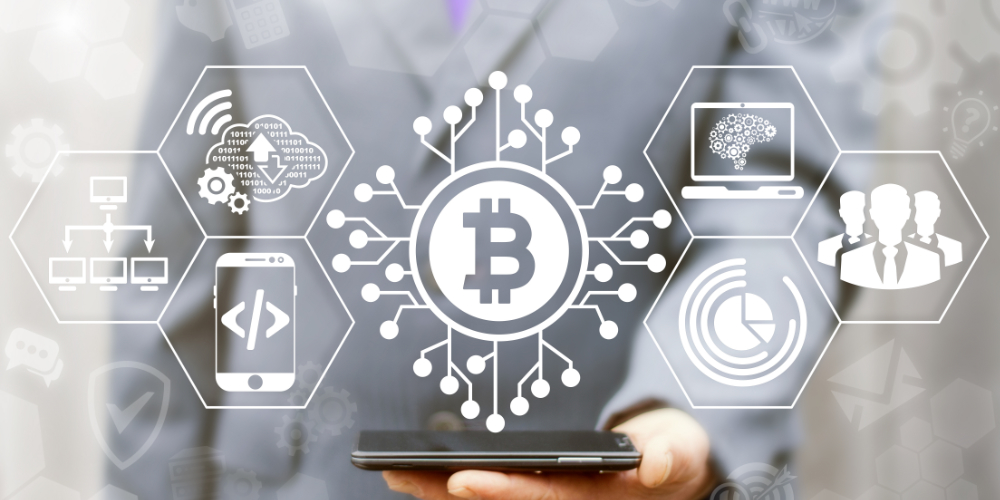
India’s supreme court heard the crypto case on Thursday, starting with the arguments by the counsel for the Reserve Bank of India (RBI). After pointing out that the RBI ban only hurts crypto businesses but does not stop crypto trading, the court explained that “being an honest contributor to the blockchain is more profitable than trying to tamper with the chain.”
Also read: Crypto vs RBI — 3 Days of Intense Supreme Court Hearings
RBI in Hot Seat, Ban Can’t Stop Crypto
The Indian supreme court resumed hearing the crypto vs. RBI case Thursday morning. Local news platform Crypto Kanoon reported from the courtroom that Shyam Divan, counsel for the central bank, picked up his arguments from the previous day. The counsel began by reading out the RBI’s reply to crypto exchanges’ representation and briefly explained about peer-to-peer exchanges operating in India and how crypto exchanges allow their users to transfer funds abroad. He claims that this exposes them to the risks associated with FEMA (Foreign Exchange Management Act), AML (anti-money laundering) and CFT (combating the financing of terrorism).
The judge pointed out that the RBI circular only stopped banks from providing services to crypto exchanges but is unable to stop crypto trading. The counsel replied that it is up to the banks to identify crypto transactions and stop them. The judge quickly interrupted him, asking: “how would the bank know without conducting an investigation and knowing the source of transactions.” The counsel admitted that the measure is not so effective but insisted that it discourages crypto transactions. Crypto Kanoon described:
Justice Nariman points a finger towards the exchanges’ counsel and says by this their business has come to end and the constituent i.e. trading of crypto is still active.

RBI Circular Did Not Cause Crypto Price Drops
While admitting that crypto trading is still active, the counsel made the claim that volumes have decreased. He then read from his brief about a sharp decline in crypto prices after the RBI circular was issued, which banned banks from providing services to crypto exchanges. The judge quickly interrupted him again, clarifying:
If you see in 2017 the graph was going up and from 2018 it is globally declining. It is not because of your circular that prices are coming down.

The counsel conceded, admitting that “there may be various other factors and it may or may not be because of RBI circular,” Crypto Kanoon conveyed. After discussing among themselves, one of the judges elaborated:
Being an honest contributor to the blockchain is more profitable than trying to tamper [with] the chain.
The RBI counsel persevered, citing several other cases’ judgments to support his arguments. He even referred to the judgments which state that the scope of the court’s intervention is “limited when an expert committee like RBI has acted under its statutory power as it is an expert body for a particular domain.”
After the lunch break, the RBI counsel continued his arguments, referring to more past judgments. They discussed the RBI’s power to regulate, which includes the power to prohibit. In concluding his arguments, the counsel insisted that the central bank has a statutory power to take the action it did. The RBI also said it has been cautioning crypto trading since 2013 and has kept a keen eye on the industry.

IAMAI Responds to RBI’s Issues
Next, the counsel for the Internet and Mobile Association of India (IAMAI), Ashim Sood, took the center stage and made his rejoinder submissions. He began by referring to the Central Goods and Services Tax Act, claiming that the law does not prohibit using cryptocurrency as a medium of exchange. Nonetheless, he added that no one uses it for that purpose due to its volatility and explained crypto’s investment potential.
The IAMAI counsel proceeded to discuss blockchain technology, using Ethereum as an example. He asserted that cryptocurrency is needed to maintain the efficiency of blockchains. Crypto Kanoon quoted him as saying:
We don’t say that it is not possible to separate crypto from blockchain. But there is a valid and legitimate reason for both to go together. Crypto makes blockchain viable for certain uses.
Sood then argued against the RBI having the authority to ban crypto, referencing a few past cases. “When RBI knows that there are legitimate uses of crypto. Then RBI should make a determination of those uses and not turn a blind eye by just citing illegitimate uses,” he said.

Further, the IAMAI counsel emphasized that there is not a single finding that crypto is impacting the payment system in any manner, noting that it was not even mentioned in the report by the interministerial committee which drafted the draft bill to ban cryptocurrencies, except state-issued ones. Sood added that there is no merit in the claim that law enforcement agencies are unable to stop crimes involving cryptocurrencies.
He proceeded to dissect the documents the RBI relied on one by one, showing the court that they are not sufficient for the central bank to take such measures. Sood also discredited the RBI’s terrorism financing argument, stating that it is part of the central bank’s kitchen-sink approach to stop crypto activities indirectly since it has no direct control over the sector.
Sood then read out a few past judgments from other cases, mentioning that the RBI annual report states that the risk from cryptocurrency is negligible. He further noted that the RBI’s reply to a Right to Information (RTI) request revealed that the central bank formed no committee to study the issue prior to issuing the April circular. While the RBI claims to take action in the interest of consumers, the IAMAI counsel read out the interdisciplinary committee’s recommendations which do not mention market integrity, financial stability, payment system, credit system, or monetary policy. Sood will continue his arguments on Tuesday. Crypto Kanoon commented from the courtroom:
It is a wonderful experience to witness a supreme court judge explaining facts about blockchain and advocating its immutability. It is more exciting to see a judge upholding Satoshi’s view.
What do you think of the supreme court hearing today? Do you think the RBI ban will be lifted next week? Let us know in the comments section below.
Disclaimer: This article is for informational purposes only. It is not an offer or solicitation of an offer to buy or sell, or a recommendation, endorsement, or sponsorship of any products, services, or companies. Bitcoin.com does not provide investment, tax, legal, or accounting advice. Neither the company nor the author is responsible, directly or indirectly, for any damage or loss caused or alleged to be caused by or in connection with the use of or reliance on any content, goods or services mentioned in this article.
Images courtesy of Shutterstock and Bitcoin.com.
Did you know you can buy and sell BCH privately using our noncustodial, peer-to-peer Local Bitcoin Cash trading platform? The local.Bitcoin.com marketplace has thousands of participants from all around the world trading BCH right now. And if you need a bitcoin wallet to securely store your coins, you can download one from us here.
The post Indian Supreme Court Warms Up to Crypto – RBI’s Arguments Not Convincing appeared first on Bitcoin News.
via Kevin Helms
0 comments:
Post a Comment